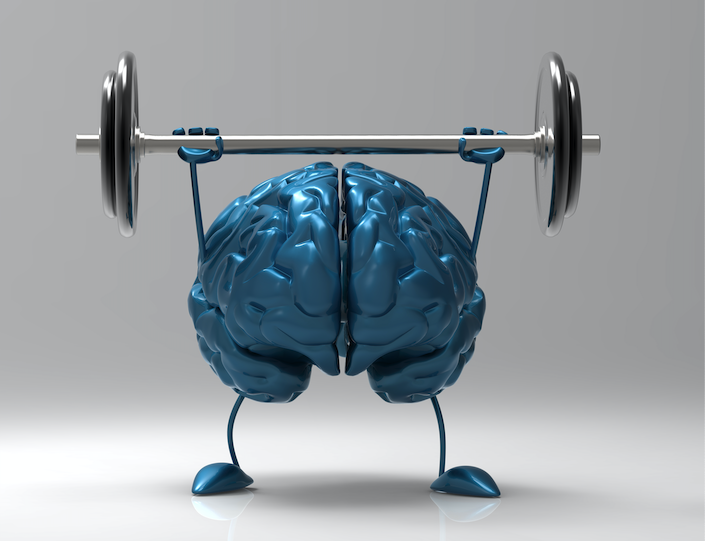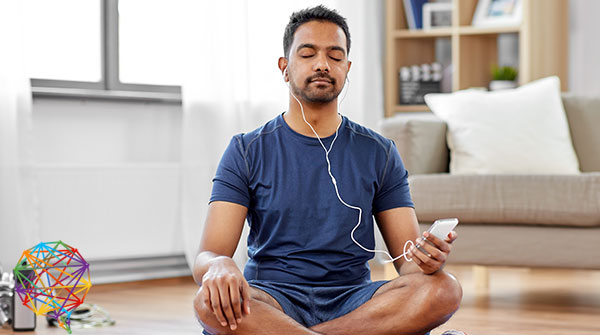How can I improve my mental fitness?

Dr. Brett Gerrard, Talk Mental Contributor.
If 2020 has left you seeking ways to improve your mental fitness then you’re not alone! Mental fitness is fast becoming the top health priority for people all over the world.
Research into how our brains develop and change is highlighting new and effective ways to enhance mental strength and performance.
How can I improve my mental fitness?
You don’t get strong arms by doing bicep curls just once and your mental strength is the same. Improving your mental fitness requires practice, and consistency. At any age though, through training you can change your brain to become stronger, healthier and fitter.
Here are two simple exercises to get you started:
1. Deep breathing.
The breath is a powerful tool that you can engage for relaxation, focus or to reduce stress in an uncomfortable situation. You can try this exercise now while you’re reading:
- Take a long slow deep inhale through the nose and let the breath expand into your chest, rib cage, and belly.
- Pause for a moment.
- Exhale through the nose and feel your stomach drawing in and the chest and ribcage falling slightly. Let your exhales be slightly longer than your inhales for added relaxation.
- Pause and repeat this cycle at least three times.
Slowing down and deepening the breath has been shown to help calm the mind. It can also reduce your blood pressure, improve memory, and settle emotions.
2. Meditation.
Meditation is an amazing gateway into a personal mental muscle-building playground and drastically improves your mental fitness. It strengthens your ability to observe all of the emotional, often unhelpful, and troubling things that your minds does and is the first step in interrupting and shifting the mental habits that cause trouble.
Meditation also helps you to focus and tune out distractions. Sam Harris, author and mindfulness expert explains:
“Much of our thinking about ourselves and the world is either pointless or actively harmful, because it’s so often borne of anxiety, envy, self-hatred, or other negative emotions, and in turn, it perpetuates those states of mind.
Mindfulness allows you to experience your life in the present, without ruminating about what just happened, what should have happened, what almost happened, what might yet happen.”
– Sam Harris
Meditation is not something that you should expect to master just by reading one article, however the process is straight forward – simply sit and practice. There are a heap of free guides to meditation for beginners online, so find one that resonates with you and get practicing!
Next steps.
Incorporating these activities into your daily routine will initially seem strange but eventually will become a natural (and anticipated) part of your daily mental workout.





Can you recommend some good links for free meditation training?